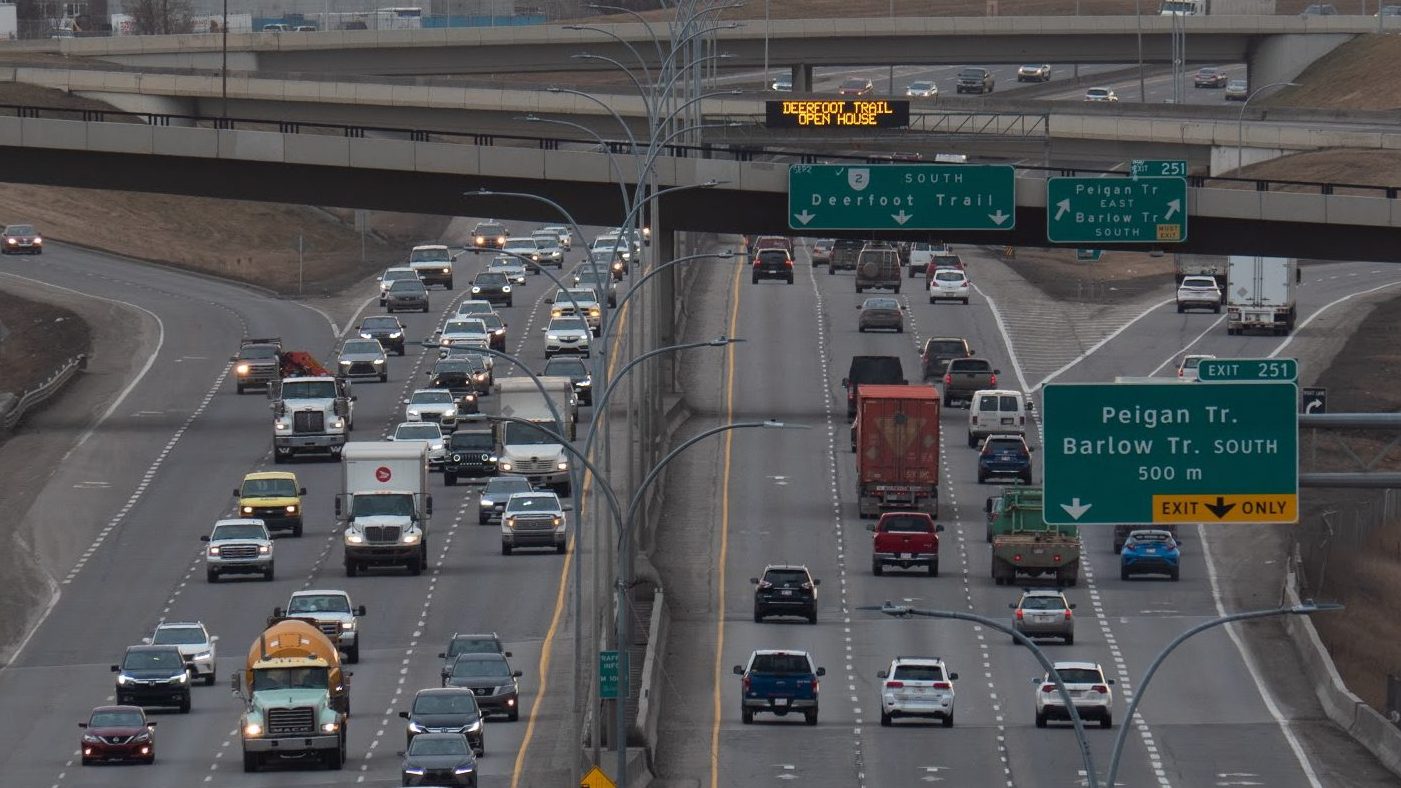
Calgary’s roads aren’t in good shape, and are getting worse every year, according to a city council report.
Currently, just 38 per cent of Calgary’s pavement is considered to be in good condition, the report to the Infrastructure and Planning Committee, presented Wednesday, says.
Calgarians consistently say transportation is a top priority during public engagement, according to the report. In an August 2024 pavement quality survey, 83 per cent of respondents said they supported increased funding for road improvements and about half said they would support a small increase to their property taxes to make improvements.
The same August survey saw less than half of respondents say they are satisfied with road surface conditions in Calgary, while the vast majority believe improving them should be a priority for the city.
The city has over 17,000 lane kilometres, valued at $15 billion, and is under pressure from increasing amounts of traffic and decreasing pavement quality. Calgary spends about $48 million a year on roads, significantly less than other cities of similar size. Edmonton, for example, spends around $159 million a year and has jut 13,000 kilometres of laneway.
On an average weekday, around 3.8 million trips are made across the city’s road network, and over one million daily trips are made on roads in poor condition.
Recent council investments in road infrastructure include $30 million for pavement rehab in conjunction with Calgary’s Pathway and Bikeway Network (5A) projects, and $8.9 million from the winter maintenance reserve, also for pavement rehab.
Despite these recent funding boosts, the city says financial support hasn’t kept pace with the demands of expanding infrastructure.
“As pavement quality deteriorates, failure to achieve an acceptable level of service will lead to future repairs requiring more reconstruction as opposed to repaving, which will result in reconstruction costs five to seven times more than traditional paving and repair programs,” the report explains.
Before the committee is a recommendations to create a pavement quality level of service target for Calgary’s road network where arterial, collector, and local road are in good condition at 60 per cent, 54 per cent and 42
per cent, respectively, in 10 years.
This would be one in phases — the city says it would first address the backlog of deferred reconstruction and major repaving work using additional funding of $14.45 million in 2025 and $14.45 million in 2026 from the mid-cycle budget adjustment and an additional $35.8 million in requested funding in 2026.
An additional $18 million will be required above the proposed 2026 budget of $98 million for 2027 and beyond to reach the recommended level of service by 2034, the city adds.
Following a decision from the committee, the matter will likely go before council.